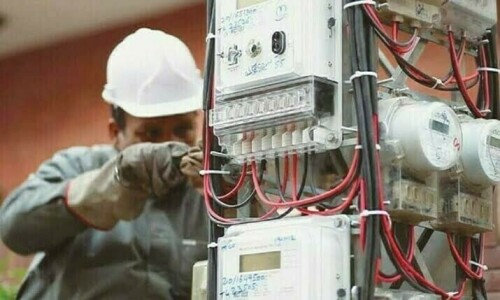KARACHI: Remittances from overseas Pakistani workers jumped 48 per cent in July compared to the same month a year ago, State Bank of Pakistan (SBP) data showed on Friday.
Inflows in July 2024 reached $2.995 billion, up from $2.029bn in July last year. Analysts say that the surge in remittances is a positive sign for the government amid ongoing political and economic uncertainties.
However, despite the year-on-year growth, there was a decline in remittance inflows on a month-on-month basis. The central bank reported that inflows in July were down by $153 million, or 5pc, compared to June 2024, when remittances totalled $3.158bn.
Currency dealers have expressed concern over the re-emergence of the grey market, which they believe is siphoning off a significant portion of remittances. They estimate that the monthly outflow to the grey market has reached close to $500m, posing a serious threat to the country’s foreign exchange reserves.
In FY23, Pakistan lost about $4bn in remittances due to the illegal smuggling of dollars to Afghanistan and Iran. Although a crackdown in September 2023 temporarily curtailed this activity and stabilised the exchange rate, recent reports indicate that smuggling has resumed.
Inflows decline month-on-month as ‘grey market resurfaces’
Currency dealers say smugglers are again transporting dollars to Afghanistan and Iran, where they can fetch a premium of Rs3 to Rs4 per dollar over the official exchange rate. In Dubai, where the rate is currently around Rs285, remitters can earn an additional Rs5 per dollar, further incentivising the diversion of funds from official channels.
In FY24, Pakistan received $30.2bn in remittances, an increase of 11pc from the $27.33bn recorded in FY23. However, currency experts warn that remittances will be crucial this year due to reduced export proceeds.
Exporters, particularly in the textile sector, which contributes more than 50pc of the country’s exports, have scaled back operations. They cite high electricity costs, new taxes and record interest rates as factors leading to the closure of 30pc of the industry.
The entire trade and industrial sectors have been asking the government to bring down electricity prices, which they argue have pushed production costs too high to remain competitive internationally. Although the central bank recently reduced the policy interest rate to 19.5pc from a record high of 22pc, the high rates persisted throughout FY24, exacerbating the challenges faced by exporters.
Published in Dawn, August 10th, 2024














































Dear visitor, the comments section is undergoing an overhaul and will return soon.